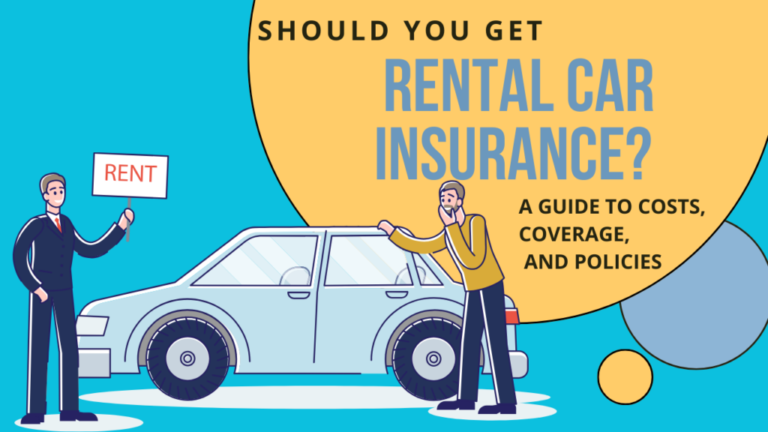Introduction to Car Rental Insurance Coverage
Ever rented a car and been hit with a whirlwind of insurance options at the counter? Yep, you’re not alone. Car rental insurance can be confusing — and sometimes downright overwhelming. But don’t worry, we’re about to break it all down for you in plain English so you can drive away with confidence.
What is Car Rental Insurance Coverage?
Basic Definition
Car rental insurance coverage is a policy that protects you against financial loss in case something happens to the rental car. This could be an accident, theft, damage, or even injury. Depending on the type of coverage, it can also protect your belongings and passengers.
Why It’s Important
Accidents happen — even to the best drivers. And when you’re driving a car you don’t own, the stakes are even higher. Rental insurance can save you from thousands in unexpected bills. It’s like a safety net for your road trip.
Types of Car Rental Insurance Coverage
Collision Damage Waiver (CDW) or Loss Damage Waiver (LDW)
This isn’t technically insurance, but it’s often treated like it. CDW or LDW waives your financial responsibility if the rental car gets damaged or stolen. It usually doesn’t cover damage from reckless driving or DUI, though.
Liability Coverage
Covers you if you injure someone or damage someone else’s property while driving the rental. It’s a must-have, and in many places, it’s legally required.
Personal Accident Insurance (PAI)
This covers medical costs for you and your passengers if you’re hurt in an accident. It’s often redundant if you already have health insurance.
Personal Effects Coverage (PEC)
Lost your laptop or camera while renting? PEC covers theft of personal items from the car. But again, you may already be covered under your home or travel insurance.
Supplemental Liability Protection (SLP)
This boosts your liability coverage to a much higher amount than the state minimum. Think of it as the deluxe version of liability insurance.
Do You Need Rental Car Insurance?
When You Might Already Be Covered
If you have personal car insurance, it might extend to rentals. Especially in the U.S., your policy could already include liability, collision, and comprehensive coverage.
When You Should Definitely Get It
- You don’t own a car (no insurance).
- You’re renting abroad.
- You’re traveling for business (your personal insurance might not apply).
- Your credit card doesn’t offer coverage.
What Does Your Personal Car Insurance Cover?
Check with Your Insurance Provider
Call your agent or check your policy online. Be specific — ask if coverage applies to rental cars and what types of incidents are included.
Limits and Restrictions
Even if you’re covered, it might not be full coverage. There could be limits on rental car type, duration, or country.
Coverage Through Credit Cards
How Credit Card Rental Insurance Works
Many credit cards offer rental coverage if you pay for the rental with the card and decline the rental company’s insurance. This is often secondary coverage, meaning it kicks in after your personal insurance.
Popular Credit Cards That Offer Rental Coverage
- Chase Sapphire Preferred
- American Express Platinum
- Capital One Venture Rewards
Check the fine print, because not all credit cards offer this perk.
International Car Rentals and Insurance
Extra Costs Abroad
Many countries require additional local insurance, which can bump up your bill. Plus, your personal or credit card insurance may not work internationally.
Language Barriers and Policy Confusion
Understanding terms and conditions in a foreign language? Yeah, no thanks. Always clarify with the rental company and consider buying a local insurance plan.
How to Decline Car Rental Insurance (Safely)
What to Show at the Counter
Bring proof of your personal auto insurance or credit card coverage. This can save you from pushy upsells.
Document Everything
Take pictures of the car (inside and out) before and after use. Keep receipts and contracts. Better safe than sorry, right?
Common Mistakes When Dealing with Rental Car Insurance
Ignoring the Fine Print
Don’t assume you’re covered for everything. Read those terms!
Not Taking Pictures of the Car
You need visual evidence if there’s a damage dispute later.
Assuming You’re Fully Covered
There might be deductibles, exceptions, or uncovered scenarios. Double-check everything.
Costs of Car Rental Insurance
Daily Add-On Charges
Insurance from the rental company can cost anywhere from $10 to $30+ per day. That adds up quickly!
Budgeting for a Short or Long Trip
For short trips, it might be worth it. For longer vacations, credit card coverage or third-party insurance can save a ton.
Insurance Add-Ons vs. Third-Party Insurance
Pros and Cons of Buying Directly
Pros: Instant peace of mind, no claim hassle.
Cons: Expensive, limited options.
Benefits of Third-Party Insurance Providers
They’re cheaper and often provide better or similar coverage. But you may need to pay out-of-pocket first, then claim reimbursement.
What Happens If You Have an Accident Without Coverage?
Out-of-Pocket Expenses
Repairs, liability, legal fees — it could cost thousands. Without insurance, you’re stuck footing the entire bill.
Legal Implications
Depending on the severity and location, you could face legal action, especially if others are injured or property is damaged.
Car Rental Insurance Tips & Hacks
Ask Before You Book
Ask the rental company about what’s included — and what’s not. Clarity saves money.
Bundle Deals Online
Use travel sites that offer car + insurance bundles. They’re often cheaper than buying separately.
Use Apps and Loyalty Programs
Memberships can come with perks like free insurance, discounts, and faster check-ins.


